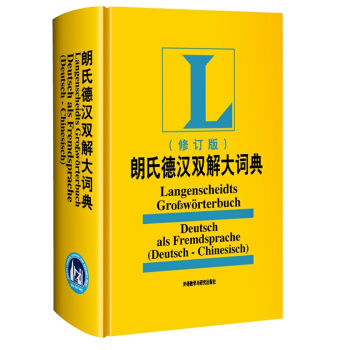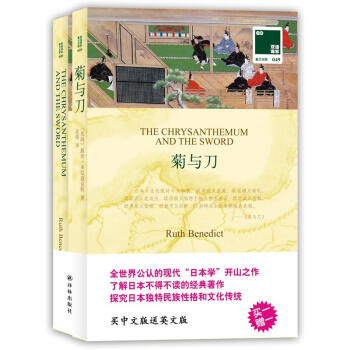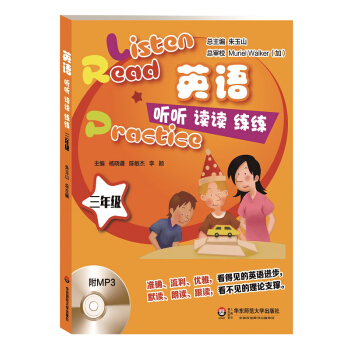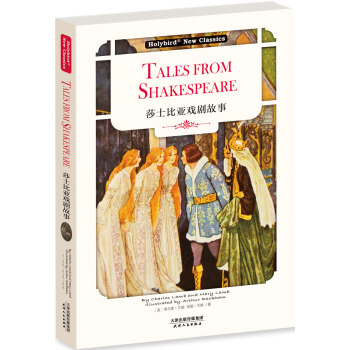

具体描述
内容简介
《莎士比亚戏剧故事:TALES FROM SHAKESPEARE》,由英国18世纪著名作家查尔斯·兰姆与姐姐玛丽·兰姆共同改写而成,原是为英国儿童写的通俗读物,现已成为全世界莎剧初学者必读的入门书。本书收录了莎士比亚著名的20部戏剧,其中12部喜剧,包括《暴风雨》《仲夏夜之梦》《无事生非》《皆大欢喜》《威尼斯商人》《第十二夜》等;8部悲剧,包括《罗密欧与朱丽叶》《奥赛罗》《丹麦王子哈姆莱特》《麦克白》《李尔王》等,囊括了莎士比亚在各创作时期的不同作品类型。
本书为英文原版,同时提供配套英文朗读免费下载,详见图书封底二维码信息。让读者在欣赏莎翁优美剧作的同时,亦能提升英语阅读水平。
Tales from Shakespeare is an English children’s book written by Charles Lamb and his sister Mary Lamb in 1807. The book is designed to make the stories of Shakespeare’s plays familiar to the young. However, as noted in the author’s Preface, “[Shakespeare’s] words are used whenever it seemed possible to bring them in; and in whatever has been added to give them the regular form of a connected story, diligent care has been taken to select such words as might least interrupt the effect of the beautiful English tongue in which he wrote: therefore, words introduced into our language since his time have been as far as possible avoided.”
Mary Lamb was responsible for the comedies, while Charles wrote the tragedies; they wrote the preface between them. The book has been republished many times. It was illustrated by Sir John Gilbert (1866), Arthur Rackham (1899,1909), Louis Monziès in (1908), Walter Paget (1910), D. C. Eyles (1934, 1938).
作者简介
Charles Lamb (1775 – 1834) was an English poet and essayist who wrote Tales from Shakespeare and Essays of Elia. He was born on February 10, 1775, in London, England. Becoming an essayist, he wrote children’s versions of well-known works, including Tales from Shakespeare. Lamb cared for his troubled sister, Mary, after she murdered their mother. He is best known for writing remarkable letters for London Magazine, Essays of Elia, under the pan name Elia. He died in 1834.
Mary Lamb (1764 – 1847) was an English writer. She is best known for the collaboration with her brother Charles on the collection Tales from Shakespeare. She and Charles presided over a literary circle in London that included the poets William Wordsworth and Samuel Taylor Coleridge, among others.
内页插图
目录
THE TEMPEST /1
A MIDSUMMER NIGHT’S DREAM /14
THE WINTER’S TALE /28
MUCH ADO ABOUT NOTHING /42
AS YOU LIKE IT /56
THE TWO GENTLEMEN OF VERONA /75
THE MERCHANT OF VENICE /89
CYMBELINE /105
KING LEAR /120
MACBETH /138
ALL’S WELL THAT ENDS WELL /151
THE TAMING OF THE SHREW /165
THE COMEDY OF ERRORS /178
MEASURE FOR MEASURE /194
TWELFTH NIGHT OR WHAT YOU WILL /210
TIMON OF ATHENS /226
ROMEO AND JULIET /240
HAMLET, PRINCE OF DENMARK /259
OTHELLO /277
PERICLES, PRINCE OF TYRE /292
精彩书摘
THE TEMPEST
There was a certain island in the sea, the only inhabitants of which were an old man, whose name was Prospero, and his daughter Miranda, a very beautiful young lady. She came to this island so young, that she had no memory of having seen any other human face than her father’s.
They lived in a cave or cell, made out of a rock; it was divided into several apartments, one of which Prospero called his study; there he kept his books, which chiefly treated of magic, a study at that time much affected by all learned men: and the knowledge of this art he found very useful to him; for being thrown by a strange chance upon this island, which had been enchanted by a witch called Sycorax, who died there a short time before his arrival, Prospero, by virtue of his art, released many good spirits that Sycorax had imprisoned in the bodies of large trees, because they had refused to execute her wicked commands. These gentle spirits were ever after obedient to the will of Prospero. Of these Ariel was the chief.
The lively little sprite Ariel had nothing mischievous in his nature, except that he took rather too much pleasure in tormenting an ugly monster called Caliban, for be owed him a grudge because he was the son of his old enemy Sycorax. This Caliban, Prospero found in the woods, a strange misshapen thing, far less human in form than an ape: he took him home to his cell, and taught him to speak; and Prospero would have been very kind to him, but the bad nature which Caliban inherited from his mother Sycorax, would not let him learn anything good or useful: therefore he was employed like a slave, to fetch wood, and do the most laborious offices; and Ariel had the charge of compelling him to these services.
When Caliban was lazy and neglected his work, Ariel (who was invisible to all eyes but Prospero’s) would come slily and pinch him, and sometimes tumble him down in the mire; and then Ariel, in the likeness of an ape, would make mouths at him. Then swiftly changing his shape, in the likeness of a hedgehog, he would lie tumbling in Caliban’s way, who feared the hedgehog’s
sharp quills would prick his bare feet. With a variety of suchlike vexatious tricks Ariel would often torment him, whenever Caliban neglected the work which Prospero commanded him to do.
Having these powerful spirits obedient to his will, Prospero could by their means command the winds, and the waves of the sea. By his orders they raised a violent storm, in the midst of which, and struggling with the wild sea-waves that every moment threatened to swallow it up, he showed his daughter a fine large ship, which he told her was full of living beings like themselves. “O my dear father,” said she, “if by your art you have raised this dreadful storm, have pity on their sad distress. See! the vessel will be dashed to pieces. Poor souls! they will all perish. If I had power, I would sink the sea beneath the earth, rather than the good ship should be destroyed, with all the precious souls within her.”
“Be not so amazed, daughter Miranda,” said Prospero; “there is no harm done. I have so ordered it, that no person in the ship shall receive any hurt. What I have done has been in care of you, my dear child. You are ignorant who you are, or where you came from, and you know no more of me, but that I am your father, and live in this poor cave. Can you remember a time before you came to this cell? I think you cannot, for you were not then three years of age.”
“Certainly I can, sir,” replied Miranda.
“By what?” asked Prospero; “by any other house or person? Tell me what you can remember, my child.”
Miranda said, “It seems to me like the recollection of a dream. But had I not once four or five women who attended upon me?”
Prospero answered, “You had, and more. How is it that this still lives in your mind? Do you remember how you came here?” “No, sir,” said Miranda, “I remember nothing more.”
“Twelve years ago, Miranda,” continued Prospero, “I was Duke of Milan, and you were a princess, and my only heir. I had a younger brother, whose name was Antonio, to whom I trusted everything; and as I was fond of retirement and deep study, I commonly left the management of my state affairs to your uncle, my false brother (for so indeed he proved). I, neglecting all worldly ends, buried among my books, did dedicate my whole time to the bettering of my mind. My brother Antonio being thus in possession of my power, began to think himself the duke indeed. The opportunity I gave him of making himself popular among my subjects awakened in his bad nature a proud ambition to deprive me of my dukedom; this he soon effected with the aid of the King of Naples, a powerful prince, who was my enemy.”
前言/序言
The following tales are meant to be submitted to the young reader as an introduction to the study of Shakespeare, for which purpose his words are used whenever it seemed possible to bring them in; and in whatever has been added to give them the regular form of a connected story, diligent care has been taken to select such words as might least interrupt the effect of the beautiful English tongue in which he wrote: therefore, words introduced into our language since his time have been as far as possible avoided.
In those tales which have been taken from the Tragedies, the young readers will perceive, when they come to see the source from which these stories are derived, that Shakespeare’s own words, with little alteration, recur very frequently in the narrative as well as in the dialogue; but in those made from the Comedies the writers found themselves scarcely ever able to turn his words into the narrative form: therefore it is feared that, in them, dialogue has been made use of too frequently for young people not accustomed to the dramatic form of writing. But this fault, if it be a fault, has been caused by an earnest wish to give as much of Shakespeare’s own words as possible: and if the “He said” and “She said” the question and the reply, should sometimes seem tedious to their young ears, they must pardon it, because it was the only way in which could be given to them a few hints and little foretastes of the great pleasure which awaits them in their elder years, when they come to the rich treasures from which these small and valueless coins are extracted; pretending to no other merit than as faint and imperfect stamps of Shakespeare’s matchless image. Faint and imperfect images they must be called, because the beauty of his language is too frequently destroyed by the necessity of changing many of his excellent words into words far less expressive of his true sense, to make it read something like prose; and even in some few places, where his blank verse is given unaltered, as hoping from its simple plainness to cheat the young readers into the belief that they are reading prose, yet still his language being transplanted from its own natural soil and wild poetic garden, it must want much of its native beauty.
It has been wished to make these tales easy reading for very young children. To the utmost of their ability the writers have constantly kept this in mind; but the subjects of most of them made this a very difficult task. It was no easy matter to give the histories of men and women in terms familiar to the apprehension of a very young mind. For young ladies too, it has been the intention chiefly to write; because boys being generally permitted the use of their fathers’ libraries at a much earlier age than girls are, they frequently have the best scenes of Shakespeare by heart, before their sisters are permitted to look into this manly book; and, therefore, instead of recommending these tales to the perusal of young gentlemen who can read them so much better in the originals, their kind assistance is rather requested in explaining to their sisters such parts as are hardest for them to understand: and when they have helped them to get over the difficulties, then perhaps they will read to them (carefully selecting what is proper for a young sister’s ear) some passage which has pleased them in one of these stories, in the very words of the scene from which it is taken; and it is hoped they will find that the beautiful extracts, the select passages, they may choose to give their sisters in this way will be much better relished and understood from their having some notion of the general story from one of these imperfect abridgments; which if they be fortunately so done as to prove delightful to any of the young readers, it is hoped that no worse effect will result than to make them wish themselves a little older, that they may be allowed to read the plays at full length (such a wish will be neither peevish nor irrational). When time and leave of judicious friends shall put them into their hands, they will discover in such of them as are here abridged (not to mention almost as many more, which are left untouched) many surprising events and turns of fortune, which for their infinite variety could not be contained in this little book, besides a world of sprightly and cheerful characters, both men and women, the humour of which it was feared would be lost if it were attempted to reduce the length of them.
What these tales shall have been to the young readers, that and much more it is the writers’ wish that the true plays of Shakespeare may prove to them in older years—enrichers of the fancy, strengtheners of virtue, a withdrawing from all selfish and mercenary thoughts, a lesson of all sweet and honorable thoughts d actions, to teach courtesy, benignity, generosity, humanity: for of examples, teaching these virtues, his pages are full.
用户评价
这本书的装帧设计真是一绝,封面那浓郁的复古气息,仿佛瞬间就能把我拉回到伊丽莎白时代的伦敦街头。纸张的质感也相当考究,拿在手里沉甸甸的,那种油墨散发出的淡淡香气,让人感觉自己捧着的不是一本简单的读物,而是一件值得珍藏的艺术品。我特别喜欢那种微微泛黄的内页,它没有现代印刷品那种刺眼的白,使得长时间阅读眼睛也格外舒适,这点对于像我这样喜欢夜读的人来说简直是福音。而且,它的字体排版非常讲究,间距和行距都拿捏得恰到好处,即便是对于那些初次接触经典文学的读者,也不会感到阅读上的压力。我特意留意了一下书脊的处理,即使是反复翻阅,书脊的胶合处依然坚固如新,这体现了出版方在细节上的用心。总的来说,从触感到视觉,这本书的物理形态已经超越了一般书籍的范畴,它成功地营造了一种沉浸式的阅读氛围,让人在还未真正进入故事之前,就已经对即将展开的宏大叙事充满了敬畏与期待。可以说,光是把它摆在书架上,就已经是一种视觉上的享受了。
评分我必须得说,这本书的文字处理方式达到了一个令人惊喜的平衡点。它没有采用那种晦涩难懂的原文或过于直白的现代白话翻译,而是找到了一种既能保留原著戏剧性的张力,又能让当代读者轻松理解的叙事腔调。那种语感的拿捏,就像是请了一位技艺高超的剧场导演在耳边轻声讲述,既有古典的韵味,又不失故事的流畅性。我发现在阅读过程中,那些复杂的家族恩怨、错综的人物关系,都被梳理得井井有条,不会让人在关键时刻感到困惑。作者显然对故事的脉络有着极其深刻的洞察力,他知道在什么地方需要详尽的心理描写来铺垫冲突,又在什么地方需要果断地推进情节,这种节奏感把握得实在太到位了。相比于我以前读过的某些删减版或过于学术化的解读,这本书更像是为“热爱故事”的人量身定做的,它让你在享受文学魅力的同时,完全沉浸在人性的复杂博弈之中,阅读体验酣畅淋漓,毫无阻滞。
评分这本书的结构安排,体现了编者极高的专业素养和对读者体验的关怀。它并非简单地将故事按时间顺序堆砌,而是似乎加入了一种潜藏的逻辑线索,让不同的故事之间产生了一种微妙的内在联系,仿佛它们共同构成了一幅宏大的时代剪影。我尤其欣赏它在叙事声音上展现出的克制与力量。叙述者始终保持着一种恰到好处的距离感,既不过度介入抒情,也不显得冷漠疏离,而是像一位睿智的老者,带着些许的沧桑感,娓娓道来那些早已尘封的悲喜剧。这种叙述的“姿态”,让读者在获取信息的同时,也感受到了一种历史的厚重感和对人类共同命运的深刻反思。这种处理方式,使得即便是结构复杂的群像戏,也能被清晰地呈现,真正做到了“清晰而不失深度”。
评分这本书给我的最大的感受,是它如何巧妙地在保持历史厚重感与追求阅读趣味性之间找到了黄金分割点。你知道,有些经典名著初读起来,会让人感觉像是在啃一块硬骨头,需要极大的毅力和背景知识储备。但这本书显然深知“引人入胜”才是王道。它处理情节冲突的方式,比如人物命运的急转直下,或者那些关键转折点的戏剧性爆发,处理得极其干净利落,充满了戏剧张力。我感觉自己不是在阅读一部“被研究”的文学作品,而是在参与一场场精彩绝伦的现场演出。那些关于权力、爱情与背叛的主题,不再是冰冷的学术概念,而是通过具体生动的故事线,直击人心。这种叙述策略,极大地降低了普通读者的门槛,同时也让那些已经熟悉原著的读者,能从一个新的角度去重新品味那些经典桥段的新鲜感,发现以前可能被忽略的细节和人物动机的微妙之处。
评分对于我个人而言,这本书的价值在于它提供了一种极佳的“再发现”经典的机会。我曾尝试阅读原著,但总被那些长难句和特定的时代背景所阻碍,难以进入状态。然而,通过这本书的重新演绎,我得以快速领略到那些经典故事的核心魅力和永恒的人性主题。它像是一座精心搭建的桥梁,让我能够轻松跨越语言和时代的鸿沟,直接触碰到故事最精华的部分。阅读过程中,我不仅感受到了情节的跌宕起伏,更重要的是,那些关于勇气、背叛、爱与嫉妒的探讨,在当代社会依然具有强大的共鸣性。这本书成功地证明了,伟大的故事是超越时代的,它以一种易于接受的现代形式,成功地完成了对经典文本的致敬与普及工作,让我对这位文艺复兴巨匠的伟大有了更直观、更深刻的理解和赞叹。
评分买来学习英文的,慢慢学习,慢慢读,纯英文书希望英文水平慢慢提高,能有质的飞跃。
评分屯货,等孩子大一点再看一
评分相信京东,相信品牌。质量不错,小孩子很喜欢。
评分挺不错的,有塑封,看原版书提高英语语感。
评分买来自己看~提升自己~
评分随书赠的,看起来还是很不错的?
评分印刷和包装都不错,快递也很给力!!!
评分京东商品价格优惠,质量有保证,发货速度很快,包装完整,已经开始使用了!好评!好评!好评!
评分图片和排版都很好,让人想要读下去。
相关图书
本站所有内容均为互联网搜索引擎提供的公开搜索信息,本站不存储任何数据与内容,任何内容与数据均与本站无关,如有需要请联系相关搜索引擎包括但不限于百度,google,bing,sogou 等
© 2026 book.idnshop.cc All Rights Reserved. 静思书屋 版权所有

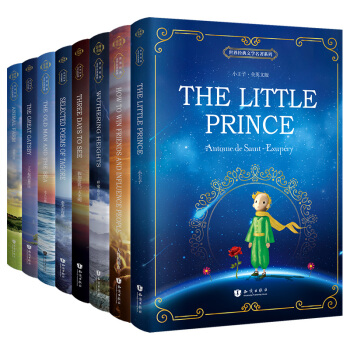
![了不起的盖茨比+老人与海+假如给我三天光明+一九八四(套装共4册 全英文版)/世界经典文学名著系列 [The Great Gatsby+The Old Man and the Sea+Three Day] pdf epub mobi 电子书 下载](https://pic.tinynews.org/12160516/58f86000N3ce4828e.jpg)
![小王子+老人与海/全英文原版经典名著系列读物(套装共2册)昂秀书虫 [The Little Prince+ The Old Man and the Sea] pdf epub mobi 电子书 下载](https://pic.tinynews.org/12062508/581aecc7N78331f62.jpg)

![世界经典文学名著系列:简爱+1984+呼啸山庄+海底两万里+傲慢与偏见(套装共5册 全英文版) [Jane Eyre+Nineteen Eighty-Four +Wuthering Heights+] pdf epub mobi 电子书 下载](https://pic.tinynews.org/12057135/58db1e45N6b78ac39.jpg)
![了不起的盖茨比+呼啸山庄+傲慢与偏见(套装共3册)全英文版 世界经典文学名著系列 [The Great Gatsby +Wuthering Heights+Pride and Prej] pdf epub mobi 电子书 下载](https://pic.tinynews.org/12102181/59dc609fN2ac23b4b.jpg)
![小王子+了不起的盖茨比(共2册)全英文版 世界经典文学名著系列 昂秀书虫 [The Little Prince+ The Great Gatsby] pdf epub mobi 电子书 下载](https://pic.tinynews.org/12009533/582bec87N24284345.jpg)
![假如给我三天光明+小王子+老人与海(套装共3册)全英文版 世界经典文学名著系列 [Three Days to See+The Little Prince+The Old Man an] pdf epub mobi 电子书 下载](https://pic.tinynews.org/12102187/5a0cf072N4448e7e2.jpg)
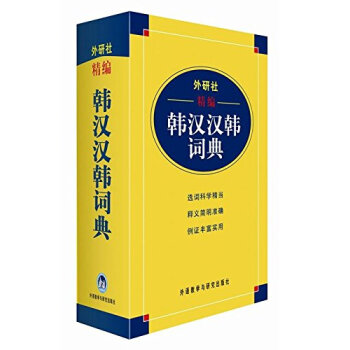
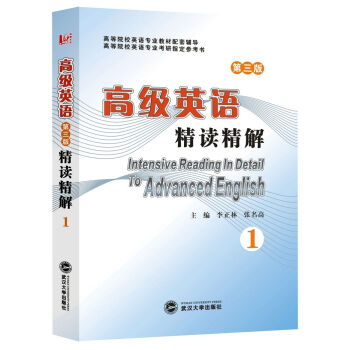
![世界经典文学名著系列:简爱+1984 +傲慢与偏见(套装共3册 全英文版) [Jane Eyre+Nineteen Eighty-Four + ride and Prejudic] pdf epub mobi 电子书 下载](https://pic.tinynews.org/12058821/5a0cf1e8N398e86bb.jpg)
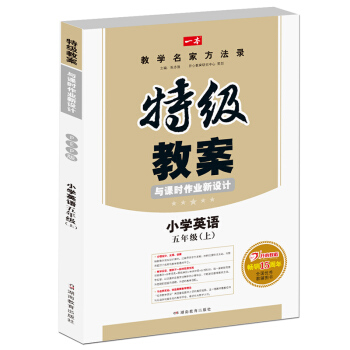
![朗文·外研社·新概念英语4(学生用书)(盒装CD版)(附光盘3张) [New Concept English] pdf epub mobi 电子书 下载](https://pic.tinynews.org/10034724/rBEhVFMhXCUIAAAAAAsrpjwEOdsAAKBqADoTNoACyu-693.jpg)
![朗文外研社:新概念英语1(英语初阶 新版 英音版 磁带2盘) [New Concept English (New Edition)] pdf epub mobi 电子书 下载](https://pic.tinynews.org/10367321/5798077eN1b476992.jpg)
